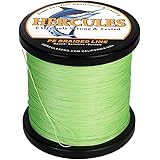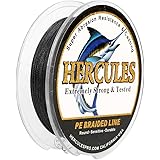The intriguing concept of utilizing everyday items for unexpected purposes, as highlighted in the video above, often sparks curiosity, especially in situations where conventional resources are scarce. Specifically, the notion of soy sauce functioning as a cough medicine is a fascinating example of traditional knowledge intersecting with practical necessity, particularly for those in outdoor or survival environments.
The Curious Case of Soy Sauce as a Remedy
The idea that soy sauce could alleviate a cough might initially seem unusual to many individuals. However, historical and anecdotal evidence sometimes points to the unexpected benefits of common household ingredients for various ailments. This approach is reminiscent of ancient remedies where readily available components were often adapted for medicinal applications.
Understanding the potential rationale behind this unconventional remedy involves examining the fundamental properties of soy sauce itself. It is widely recognized for its high salt content and distinctive umami flavor, derived from a complex fermentation process, which could contribute to its perceived efficacy in certain contexts.
Potential Mechanisms and Historical Context
Exploring the possible reasons why soy sauce might be considered for cough relief requires an examination of its constituents. Several characteristics of this ubiquitous condiment could theoretically offer some symptomatic relief, especially when considering its use in the absence of conventional options.
The Role of Salt and Umami
The high sodium content in soy sauce is a primary factor often associated with throat comfort. Salt is known to possess mild antiseptic properties and can help draw out fluid from inflamed tissues, which might temporarily soothe a sore throat or reduce irritation responsible for coughing. It functions in a manner similar to a saltwater gargle, which is a widely accepted home remedy for throat discomfort.
Furthermore, the rich umami flavor profile of soy sauce, attributed to glutamates, might also play a role. Umami flavors are often linked to comfort and can stimulate saliva production, which helps moisten a dry or irritated throat. This action can be compared to the comforting effect of warm broths, which are frequently consumed during periods of illness to ease throat irritation and promote hydration.
Fermentation Benefits
Soy sauce is a product of fermentation, a process known to enhance the nutritional and often the medicinal properties of foods. During fermentation, various compounds are produced, including antioxidants and potentially anti-inflammatory substances. While these compounds are typically associated with general health benefits, their presence might subtly contribute to an overall sense of well-being, which is beneficial when the body is fighting off a cough.
Traditional remedies frequently leverage fermented foods for their perceived health advantages, positioning soy sauce within a broader category of natural, food-based interventions. The complex biochemical profile resulting from fermentation might offer a subtle, holistic effect rather than a targeted pharmacological action against coughs.
Comparing Soy Sauce to Established Home Remedies
When considering soy sauce as a natural cough relief, it is helpful to compare its potential mechanisms to more commonly accepted home remedies. This allows for a better understanding of its place within the spectrum of alternative treatments, particularly when conventional medicines are unavailable.
Honey, for example, is well-regarded for its demulcent properties, meaning it coats the throat and provides soothing relief from irritation. Soy sauce does not possess this viscous quality but rather acts through its saline and umami components. Similarly, while a hot cup of tea with lemon can provide warmth and hydration, soy sauce offers a distinct set of attributes.
It is important to understand that while soy sauce may provide temporary alleviation, it typically functions differently from remedies that directly target cough suppression or mucus thinning. Its effectiveness is more aligned with the general soothing of throat discomfort, akin to a salt water gargle, rather than a broad-spectrum cough treatment.
Practical Considerations for Outdoor and Survival Scenarios
In outdoor or survival situations, access to pharmacies and conventional medical supplies is often severely limited. Consequently, individuals frequently turn to readily available items or traditional knowledge to manage minor ailments. This is where the concept of soy sauce as a natural cough relief becomes particularly relevant.
Soy sauce possesses a long shelf life and is a common item carried on camping trips or stored as part of emergency provisions. Its accessibility makes it a viable option for addressing mild, irritating coughs or sore throats when other solutions are out of reach. However, it should only be considered for very minor symptoms and not as a substitute for proper medical care in more serious cases.
Administering a small amount, perhaps a teaspoon, is generally considered sufficient for a gargle or slow swallow. It is also advised to use regular soy sauce and avoid varieties with added sugars or excessive flavorings, which could exacerbate irritation rather than alleviate it. Ensuring adequate hydration and rest remain paramount, even when exploring alternative remedies like soy sauce for coughs.
Important Disclaimers and Responsible Health Practices
While the exploration of unconventional natural remedies like soy sauce cough medicine can be informative, it is crucial to approach such practices with caution and an understanding of their limitations. The scientific evidence directly supporting soy sauce as a definitive cure for coughs is largely anecdotal and not clinically proven.
Therefore, it must be stated unequivocally that soy sauce should not be considered a primary treatment for persistent or severe coughs. Such symptoms warrant immediate professional medical attention. This remedy is best viewed as a temporary measure for minor irritations, especially in situations where conventional medical access is not possible.
Prioritizing foundational health practices such as staying hydrated, getting sufficient rest, and avoiding irritants remains the most effective approach to managing coughs. For those interested in exploring various methods of cough relief with soy sauce, it is always recommended that they do so responsibly and in conjunction with established health guidelines.











